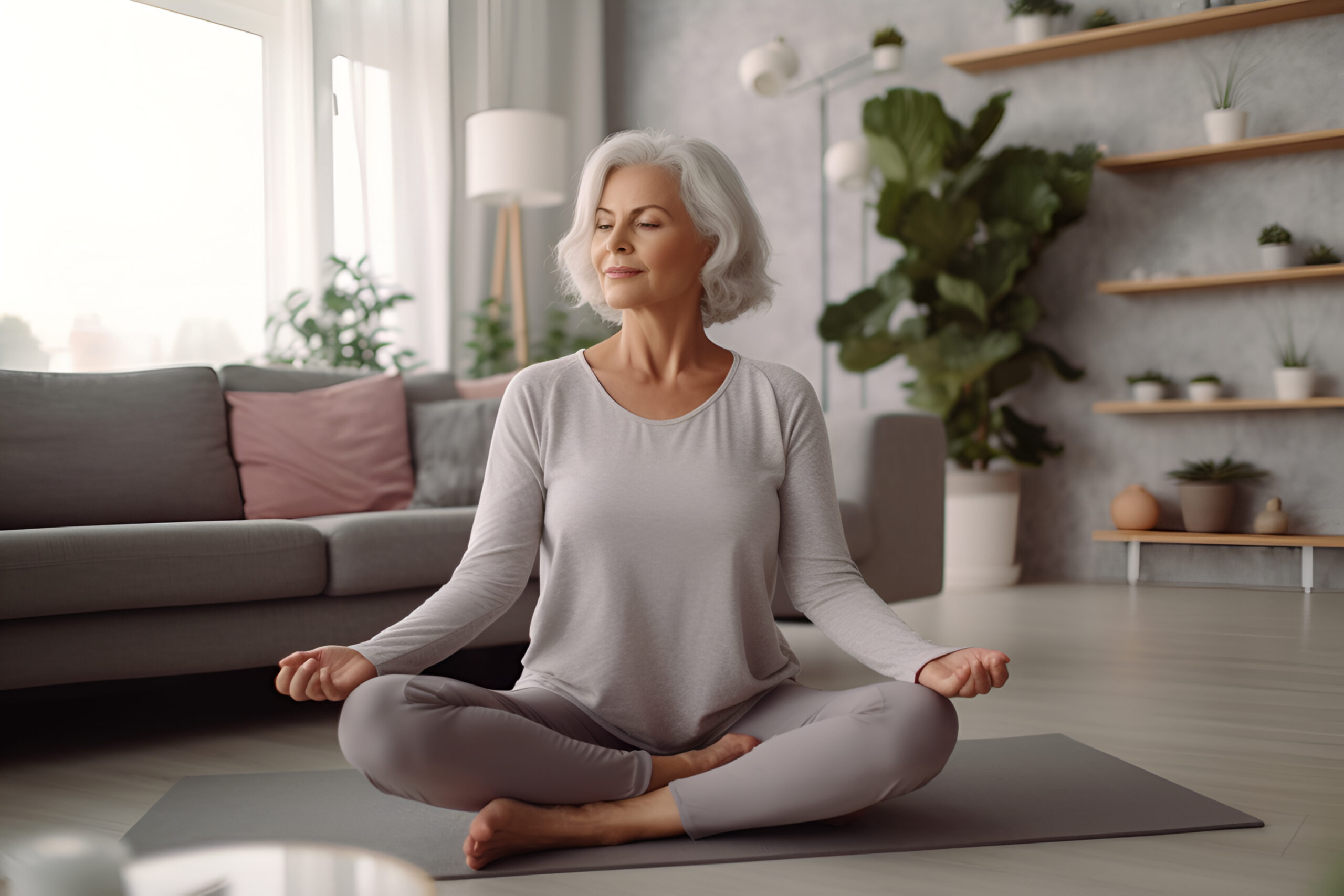Alternative and complementary approaches to managing menopause symptoms offer non-medical options that can complement traditional medical treatments. These approaches focus on holistic well-being and may include lifestyle changes, natural remedies, and mind-body practices. Here are some alternative and complementary strategies to consider:
Herbal Remedies:
Certain herbs and botanicals are believed to help manage menopause symptoms. Examples include black cohosh, red clover, dong quai, and evening primrose oil. Consult a healthcare provider before using herbal supplements, especially if you’re taking medications.
Mindfulness and Meditation:
Mindfulness practices and meditation techniques can help reduce stress, and anxiety, and promote emotional well-being.

Yoga and Tai Chi:
These mind-body practices can improve flexibility, balance, and promote relaxation.
Acupuncture:
Acupuncture involves the insertion of thin needles into specific points of the body. Some women find it helpful for managing hot flashes and other symptoms.
Aromatherapy:
Certain essential oils, like lavender and peppermint, can be used in aromatherapy to promote relaxation and alleviate stress.
Dietary Changes:
Some women find relief from symptoms by adjusting their diet. Avoiding triggers like spicy foods, caffeine, and alcohol may help manage hot flashes.
Phytoestrogens:
Foods rich in phytoestrogens, such as soy products, flaxseeds, and whole grains, may provide some relief from hormonal fluctuations.
Exercise and Physical Activity:
Regular exercise can improve mood, bone health, and overall well-being. Incorporate a variety of activities, including aerobic exercises and strength training.
Cognitive Behavioral Therapy (CBT):
CBT is a therapeutic approach that can help manage mood changes and emotional well-being.
Chiropractic Care:
Some women find chiropractic adjustments helpful for managing joint discomfort and promoting overall comfort.
Biofeedback:
Biofeedback involves learning how to control physiological functions to reduce stress and promote relaxation.
Massage Therapy:
Massage can provide relaxation, reduce muscle tension, and promote a sense of well-being.
Important Considerations:
Consult a Healthcare Provider: Before trying any alternative or complementary approach, consult a healthcare provider. They can help you determine what is safe and appropriate for your specific health needs.
Individual Responses Vary: What works for one person may not work for another. Be open to trying different approaches and see what resonates with you.
Holistic Approach: Combining various strategies can provide a more holistic approach to managing menopause symptoms.
Safety First: Be cautious of potential interactions between alternative remedies and medications. Always inform your healthcare provider about any supplements or practices you’re considering.
Remember that alternative and complementary approaches are meant to support your overall well-being and can be used in conjunction with traditional medical treatments. Your healthcare provider can help guide you toward the approaches that are best suited to your individual needs and preferences.


